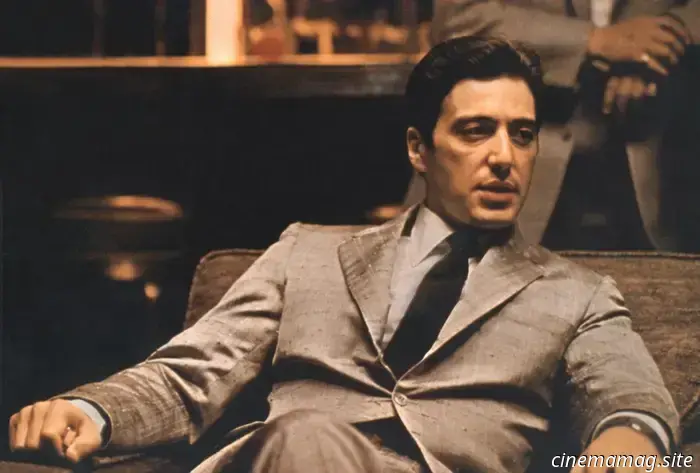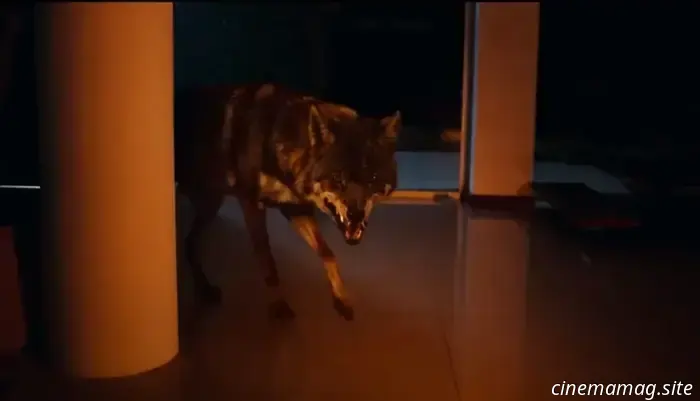
Films That Launched a Franchise - MovieMaker Magazine
Some films come and go; you watch them, perhaps laugh or cry, and then they disappear from memory. However, a few inspire something much greater. All of a sudden, we find ourselves with sequels, spin-offs, merchandise, and even theme parks. These are the movies that didn’t just entertain us once – they launched entire franchises.
The Godfather (1972)
When Francis Ford Coppola’s The Godfather premiered, it was more than just another mob film – it became an instant classic. This narrative about family, loyalty, and betrayal gave rise to two unforgettable sequels, etched its name in film history, and introduced quotes that people still say decades later.
And here’s an interesting twist – the Corleones expanded beyond the screen, making their mark in the gaming world as well, with a successful online slots game. It turns out the family business thrives just as well on the reels as it did in olive oil.
Die Hard (1988)
Prior to Die Hard, action heroes were largely brawn without brains. Then came Bruce Willis as John McClane, an ordinary cop squeezed into a terrorist-infested Nakatomi Plaza on Christmas Eve. He wasn’t untouchable, but he was witty, sarcastic, and too determined to surrender. What began as a thrilling ride evolved into numerous sequels, an ongoing debate about its status as a Christmas film, and an iconic catchphrase – Yippee-ki-yay.
The Lord of the Rings: The Fellowship of the Ring (2001)
Peter Jackson’s Lord of the Rings trilogy didn’t merely adapt fantasy for the big screen – it made it trendy. Elves, hobbits, and orcs suddenly turned into box-office sensations. And we can’t overlook the stunning New Zealand landscapes that brought Middle-earth to life, making the country a must-visit destination for travelers. Following three groundbreaking films, the franchise expanded with The Hobbit prequels, endless merchandise, and spin-offs. Middle-earth secured its place as a permanent fixture in pop culture.
Harry Potter and the Philosopher’s Stone (2001)
When Harry first stepped into the Great Hall at Hogwarts, it was pure magic. The audience was captivated. Magic, friendship, Quidditch – everything just connected. This led to eight films, a spin-off series, theme parks, and an overwhelming amount of merchandise that could fill a Gringotts vault. For an entire generation, these films weren’t just entertainment – they were a significant part of growing up. Even today, Hogwarts houses hold as much importance as zodiac signs.
What We Do in the Shadows (2014)
Not every franchise starts with a huge budget. Take What We Do in the Shadows, the vampire mockumentary by Taika Waititi and Jemaine Clement, for example. Set in Wellington, it transformed the mundane disputes of vampire housemates, like chores, meetings, and the occasional blood theft, into comedic gold. From an indie film, it blossomed into an international success, inspiring spin-offs in both New Zealand and the U.S. This demonstrates that franchises don’t always need orcs or mobsters; sometimes, bickering undead roommates over chores is sufficient.
Why We Keep Coming Back
So, what makes these films suitable for franchising? They build worlds we genuinely want to revisit. Whether it’s Middle-earth, Hogwarts, the rooftops of New York, or the Corleone family gatherings, they leave us yearning for more. And occasionally, their influence extends beyond the screen; The Godfather even found new life as a slots game, indicating that a great story can take on many forms. Franchises endure because they offer more than just movies. They provide us with characters we invest in and lines we can’t help but repeat. And as long as Hollywood continues to create, we’ll keep coming back.
Photo: Al Pacino in The Godfather, courtesy of Paramount Pictures.
Other articles
-Movie-Review.jpg) Eleanor the Great (2025) - Film Review
Eleanor the Great, 2025 Directed by Scarlett Johansson. Featuring June Squibb, Erin Kellyman, Jessica Hecht, Rita Zohar, Chiwetel Ejiofor, and Will Price. SYNOPSIS Following a heartbreaking loss, the sharp-witted and unapologetically difficult Eleanor Morgenstein, aged 94, recounts a story that spirals into a perilous existence of its own. Marvel alumna Scarlett Johansson steps into the director's role in […]
Eleanor the Great (2025) - Film Review
Eleanor the Great, 2025 Directed by Scarlett Johansson. Featuring June Squibb, Erin Kellyman, Jessica Hecht, Rita Zohar, Chiwetel Ejiofor, and Will Price. SYNOPSIS Following a heartbreaking loss, the sharp-witted and unapologetically difficult Eleanor Morgenstein, aged 94, recounts a story that spirals into a perilous existence of its own. Marvel alumna Scarlett Johansson steps into the director's role in […]
 TIFF Review: Julian Presents a Queer Love Story of Sorrow and Preservation
It’s a brief, transient moment. At a concert, Fleur (Nina Meurisse) meets Julian’s (Laurence Roothooft) gaze the moment she sits down, and instantly, a connection is established. The intrigue and shared attraction swiftly evolve into a courtship, followed by an unexpected engagement toast during dinner with friends. While the couple revels in the announcement, Fleur interrupts.
TIFF Review: Julian Presents a Queer Love Story of Sorrow and Preservation
It’s a brief, transient moment. At a concert, Fleur (Nina Meurisse) meets Julian’s (Laurence Roothooft) gaze the moment she sits down, and instantly, a connection is established. The intrigue and shared attraction swiftly evolve into a courtship, followed by an unexpected engagement toast during dinner with friends. While the couple revels in the announcement, Fleur interrupts.
-Movie-Review.jpg) It Was Just An Accident (2025) - Film Review
It Was Just An Accident, 2025. Written and Directed by Jafar Panahi. Featuring Vahid Mobasseri, Mariam Afshari, Ebrahim Azizi, Hadis Pakbaten, Majid Panahi, Mohamad Ali Elyasmehr, Delnaz Najafi, Afssaneh Najmabadi, and Georges Hashemzadeh. SYNOPSIS: A man abducts an intelligence agent he thinks has harmed him and intends to murder him, but is unable to verify his […]
It Was Just An Accident (2025) - Film Review
It Was Just An Accident, 2025. Written and Directed by Jafar Panahi. Featuring Vahid Mobasseri, Mariam Afshari, Ebrahim Azizi, Hadis Pakbaten, Majid Panahi, Mohamad Ali Elyasmehr, Delnaz Najafi, Afssaneh Najmabadi, and Georges Hashemzadeh. SYNOPSIS: A man abducts an intelligence agent he thinks has harmed him and intends to murder him, but is unable to verify his […]
 'Eat the Rich': Coyotes Feast on Hollywood Hills Elites in Trailer - MovieMaker Magazine
Hollywood duo Justin Long and Kate Bosworth portray a cinematic couple targeted by coyotes in the intense new trailer for the horror movie Coyotes.
'Eat the Rich': Coyotes Feast on Hollywood Hills Elites in Trailer - MovieMaker Magazine
Hollywood duo Justin Long and Kate Bosworth portray a cinematic couple targeted by coyotes in the intense new trailer for the horror movie Coyotes.
Films That Launched a Franchise - MovieMaker Magazine
Certain films appear and disappear. You view them, possibly feel joy or sorrow, and then they're forgotten. However, a few spark something greater. Before you know it, we have sequels,
